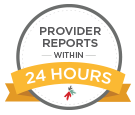Florida Respiratory Therapist CE Package - 24 Contact Hours
CE Broker #20-662472 - Satisfies all renewal requirements
Florida Board Approved-- 24 contact hour Package - #50-20641
Reports to CE Broker within 24 Hours

This course covers all required topics for license renewal. Respiratory professionals who take this package will meet renewal compliance. Includes Medical Errors and Laws & Rules of the Board.
Course Description
Learning Objectives
Introduction
History of the Evolution of Respiratory Therapy as a Profession and Discipline
History of Respiratory Therapy as a Licensed Profession in the State of Florida
Overview of Ethics in the Practice of Respiratory Therapy
Overview of Florida Rule Chapter 64B32
Conclusion
Quiz
References
Learner's Objectives
Frequency of Medical Errors
Defining Medical Errors
Adverse Events
Near Misses
What Should Be Reported
Common Types of Medical Errors
Analyzing and Preventing Medical Errors
Root Cause Analysis
VA Recommendations For Performing RCAs
Conclusion
References
Medical Errors - Test
Learner's Objective
Definitions and Types of Human Trafficking
Types of human trafficking
FACTORS THAT CONTRIBUTE TO HUMAN TRAFFICKING
THE TRAFFICKING EXPERIENCE THROUGH THE EYES OF A VICTIM
IDENTIFIERS AND ASSESSMENT AS A HEALTHCARE PROVIDER
PUBLIC AND PRIVATE SOCIAL SERVICES AND REPORTING PROCEDURES
PROCEDURES FOR SHARING INFORMATION WITH PATIENT AND REFERRAL OPTIONS FOR LEGAL AND SOCIAL SERVICES
References
Human Trafficking - Test
Course Description
Learning Objectives
Introduction
Overview: What is Biological, Chemical, or Radiological Terrorism?
The Role of Health Care Providers During a Bioterrorism Attack
Examples of Recent Bioterrorism Events
Types of Agents Used in Bioterrorism
Common Bacterial and Viral Agents Used in Bioterrorism
Common Toxins Used in Bioterrorism
Identifying and Managing a Biological Attack
Chemical Terrorism
Radiological and Nuclear Terrorist Attacks
Personal Protective Equipment in the Event of a Bioterrorist Attack
The Role of the Health Alert Network
Conclusion
References
Post Test
Learner's Objectives
Introduction
Age-Related Disease Processes and Chronic Conditions
Diseases and Medical Conditions in the Older Adult
Age-Related Memory Changes and Challenges
When It's Dementia
Elder Abuse
Care at the End of Life
Implications for Nursing Care of the Older Adult
Communicating with the Older Adult
Culture and the Care of the Elderly Patient
Helping the Patient Maintain Independence and Self-Worth
Mental Health Issues in the Elderly
Conclusion
Older Adult Care - Test
Introduction
Learning Objectives
Overview
Definition of Pediatric Abusive Head Trauma
Prevalence of Pediatric Abusive Head Trauma
Causative Factors of Pediatric Abusive Head Trauma
Risk Factors for Pediatric Abusive Head Trauma
Understanding the Mechanisms of Injury in Cases of Pediatric Abusive Head Trauma
Clinical Signs and Symptoms of Pediatric Abusive Head Trauma
Intracranial Injuries Associated with Pediatric Abusive Head Trauma
Common Indicators of Abuse
Legal and Ethical Mandate to Report Abuse
Preventing Pediatric Abusive Head Trauma Through Education
Calming Techniques for Frustrated Parents
Conclusion
References
Post Test
Course Description
Learning Objectives
Overview of Disorders and Diseases Affecting the Lungs and Breathing
Chronic Obstructive Pulmonary Disease Defined
The Evolution of Our Understanding of COPD
COPD by the Numbers
An Overview of the Pulmonary System and Normal Lung Function
A Comparison of Asthma and COPD
Emphysema and Its Relationship to COPD
Chronic Bronchitis and Its Relationship to COPD
Causes of COPD
Symptoms of COPD
Treatments for COPD
Frequently Asked Questions About COPD
Preventing COPD and COPD Exacerbations
Conclusion
Post-Test
References
Course Description
Learning Objectives
Introduction
The History and Evolution of Our Understanding of Genetic Abnormalities
The History and Evolution of Our Understanding of Genetic Abnormalities Relating to Lung Function
Stages of Pre-Natal Pulmonary Development
How the Pulmonary System Transitions From the Amniotic Environment
Classifications of Genetic Abnormalities
Autocrine-Paracrine and Transcriptional Signaling During Lung Formation
Disorders Affecting Formation of Pulmonary Surfactant
Preventative Measures
Conclusion
Post-Test
References
Course Evaluation
Katie Smith
Complete your renewal, fast and easy!